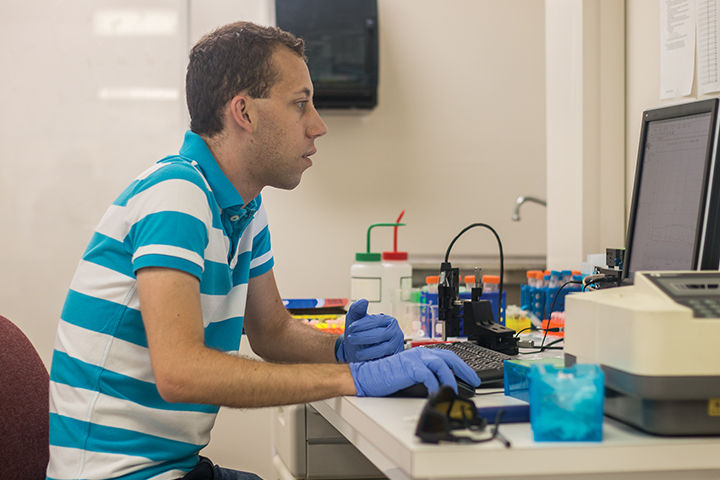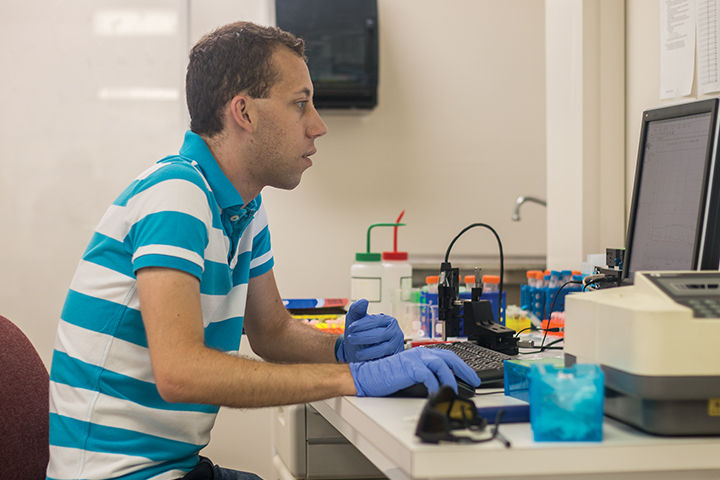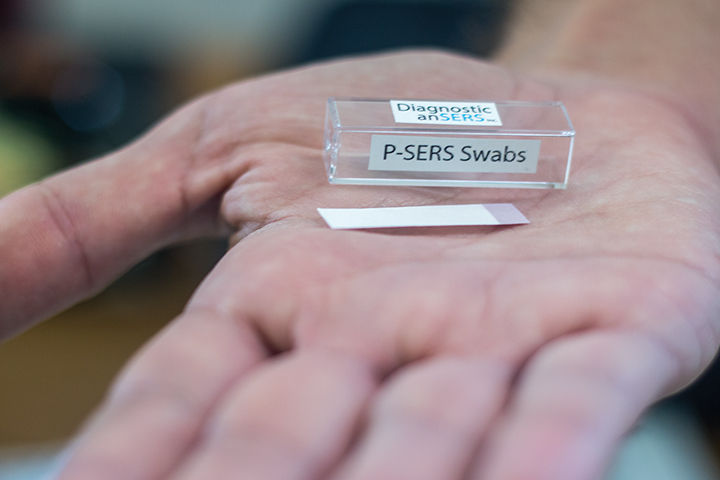A $150,000 grant awarded to a University of Maryland-based startup will help them develop a saliva-based test to detect drivers under the influence of illegal drugs.
Diagnostic anSERS announced July 20 the National Science Foundation awarded them a Small Business Innovation Research Phase I grant, which will provide it with the funds over a six-month period, said Eric Hoppmann, co-founder of Diagnostic anSERS and 2013 alumnus.
The team is developing a roadside drug assessment in the form of a paper test strip, which could be used to identify drugs in drivers, Hoppmann said.
“If someone is pulled over with signs of impairment, we hope to create a way to test if that’s due to them being under the influence of illicit drugs, and not just from consuming alcohol,” Hoppmann said.
While there are Breathalyzers to test for alcohol, no similar technology exists to test for illegal drugs and receive immediate results.
With a $150,000 boost from its new grant, Diagnostic anSERS hopes to fill that need. Their technology uses ink-jet printed nanoparticles to identify traces of narcotics in saliva.
The grant will be used to fund research into adapting the nanoparticles, thereby making detection even stronger, said co-founder Sean Virgile, who was the 2010 Fischell Fellow at this university’s bioengineering department.
“Every chemical in every drug has a unique fingerprint,” Virgile said. “The nanoparticles serve as a magnifying glass for that chemical fingerprint, increasing the signal over one million times.”
Hoppmann and Virgile founded the company in 2012 under the guidance of bioengineering professor Ian White.
Many states, including this one, rely on drug recognition experts, highly trained and specialized officers who can identify impaired drivers by observing a number of factors, University Police Chief David Mitchell said.
“The problem with DREs is that they are expensive and not always accessible,” Mitchell said. “So we could really use this type of test.”
After the completion of Phase I, Diagnostic anSERS will be able to apply for a Phase II grant, which could allot it $750,000 for up to two years of work.
Efforts on this project come at a time when views about recreational drugs, specifically marijuana, are changing. More than half of Americans supported marijuana legalization in 2015, according to the Pew Research Center, and this state decriminalized small amounts of the drug during last year’s legislative session.
“As we shift in how we view marijuana and marijuana use, this test becomes that much more critically important,” Mitchell. “Smoking weed is one thing, but smoking to where you’re impaired to drive an automobile is another — and that’s the challenge for us right now.”
Mitchell praised Diagnostic anSERS for taking on the task.
“I’m proud to say they’re from Maryland,” he said.
Sean Virgile, the co-founder of Diagnostic anSERS, is shown working on a project in the laboratory on Wednesday, August 5.
Displayed is a slice of P-SERS swab used to detect narcotics





